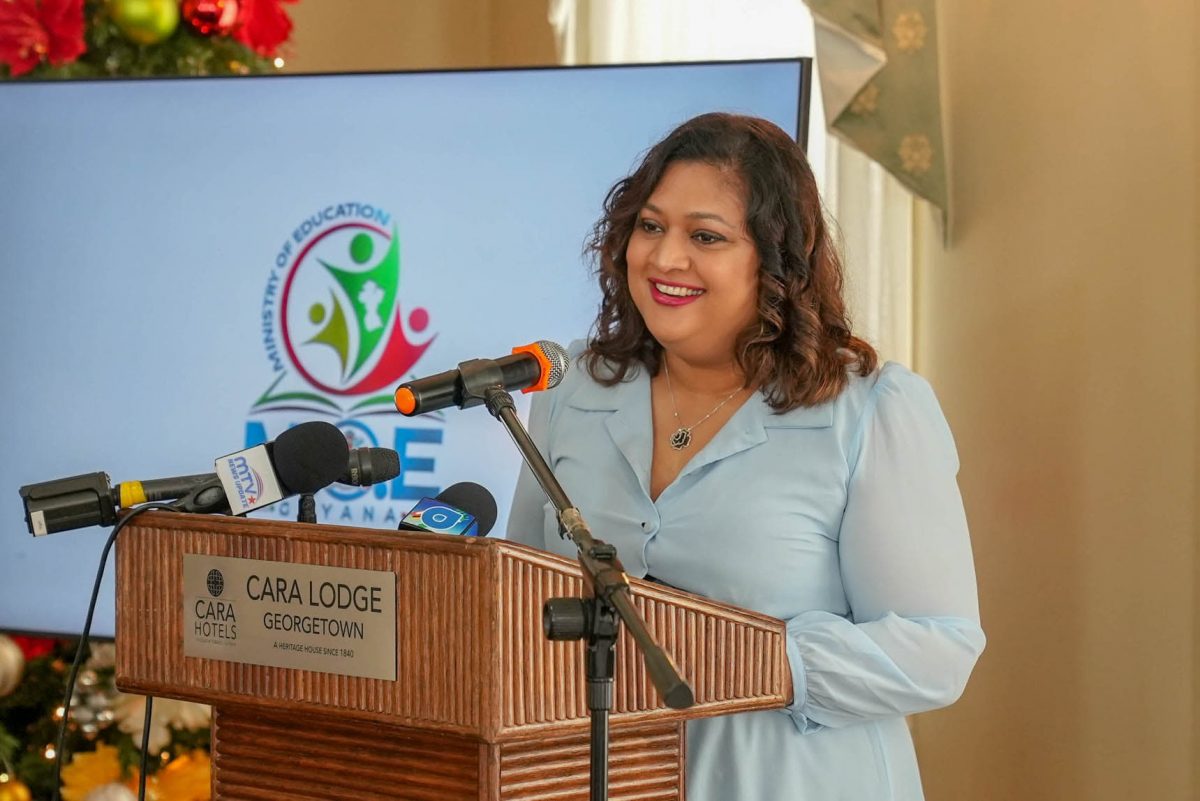Full time face-to-face learning will resume for some academic levels in 2022, according to Minister of Education, Priya Manickchand.
During an address to the media on Monday, the minister said that fulltime face-to-face learning will re-commence in January 2022, for grades 8 to 12. She noted that the students have been given sufficient time to get vaccinated and the ministry can no longer wait for persons who are hesitant to get their jabs. According to Manickchand, the schools will be reopened with the necessary facilities to achieve a safe return. Further, an analysis of Ministry of Education (MoE) data, has revealed that students are being highly affected and cannot continue to learn at the required level through the current teaching methods. As it stands, students are being engaged via a timetabled physical classroom schedule for nursery, primary and grades 10, 11 and 12.
However, the students’ learning has suffered. Manickchand pointed out that the consolidated curriculum which was developed to help students at the primary level, has condensed 40 weeks of work into 20 weeks of important topics that students have to learn before exiting the primary level and moving on to secondary education. In view of this state of affairs, the testing for the next four years may likely only encompass Grade Five-level topics. The minister contended that the year of work that was missed cannot be ignored even with the teaching continuing. She stressed that the work has to be taught and therefore students will have to learn the curriculum that would’ve been taught in the previous Grade when they enter the higher level and explained, “Grade Four will be doing Grade Three work and Grade Five will be doing Grade Four work and Grade Six will be doing Grade Five work.”
Manickchand also disclosed that the number of vaccinated teachers had risen above 70 per cent in December. She added that 79 per cent of the teachers at Nursery and Secondary levels for the coastal regions have been vaccinated with 71 per cent at the secondary level, with some regions still showing hesitancy.
And while the schools will be conducting physical classes, the ministry will be working closely with the Ministry of Health to know when the vaccines will become available for the younger children to be inoculated and so allow them return to fulltime classes. Students who do not wish to return to such classes will be required to continue learning through the assistance provided by the MoE, such as the ministry’s website. Parents will be responsible for ensuring that the students are learning at home so as to avoid more learning loss.
Further, Manickchand said that Technical and Vocational Education and Training (TVET) institutions and Cyril Potter College of Education (CPCE) should also be reopened with the availability of double dose and booster shots of vaccines. In addition, the MoE will be continuing its efforts to provide learning resources and facilities to all regions. The distribution of worksheets is coming to an end in 2022 unless accessed from the ministry’s website but the distribution of text books for each primary level will continue. The minister informed that a total of 17 text books were distributed to Grade Six students for them to prepare for the National Grade Six Assessment (NGSA). In addition to those books, the New Junior English, the Students Companion, and other text books that are expensive but necessary for classes, will be provided. The MoE is also working with a Trinidadian publishing firm to have the ‘Science For Our Children’ and ‘Social Studies Around Us’ text books revised for the students. Other local text books, namely the ‘Atlantic Reader’ will finally have Levels 4 to 6 along with the Worksheet while nursery school students will have the new and improved Roraima Readers text books.
These efforts will be accompanied by the Ministry’s Literacy Programme and re-incorporated into the sector. According to Manickchand, the Adult Literacy programme will assist those persons in society who have dropped out of school for whatever reason. She added that 150 persons will be coached to provide help for persons in the programme which will be conducted in regions One, Seven, Eight and Nine. According to the Minister, while English Language has high pass rates at both primary and secondary levels, reading and comprehension skills have decreased, hence the need in society for the programme.
Additionally, Wapishan – an Indigenous tribal language – will be used for teaching in Region Nine and English Language will be introduced as a second language programme to 14 communities in the region. As part of the renewed curriculum that is being instituted for Grades One to Four, care for environment, material and learning will be introduced to the primary school levels to have students become aware of effects on the environment from a young age.
The expansion of facilities across the nation includes the commissioning of the Martyr’s Ville Nursery in January, 2022 and the expansion of the Caribbean Advanced Proficiency Examination (CAPE) programme to Annandale Secondary, Berbice Secondary, as well as in Region Nine.





